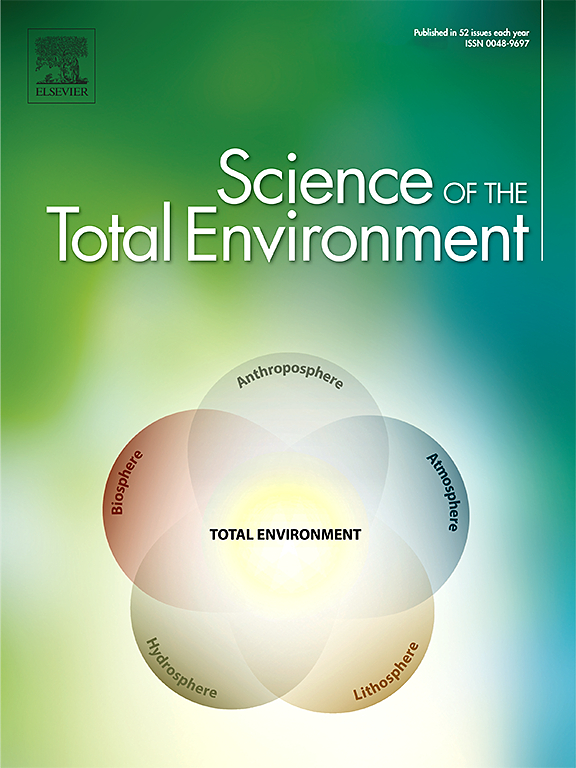Impact of treated wastewater sludge on soil and wheat growth characteristics in a semi-arid climate
IF 8.2
1区 环境科学与生态学
Q1 ENVIRONMENTAL SCIENCES
引用次数: 0
Abstract
Sludge accumulation as a byproduct of wastewater treatment is an increasingly growing concern which can be addressed by utilizing the sludge as a soil amendment. A two-year study was conducted to valorize sludge as an organic amendment on soil cultivated with rainfed wheat (Triticum icaversea) and its impact on soil properties, microbial activity, wheat yield and grain quality. The study was conducted in Lebanon, where the sludge accumulation problem is especially important given the absence of proper treatment and disposal methods. Baseline characterization of sewage sludge collected from secondary (SS) and tertiary (TS) wastewater treatment plants showed that both sludge types can be classified as suitable for restricted agricultural use (Class B), which cannot be used on soils to grow fruits or vegetables that are eaten raw. Post-harvest analysis of the amended soils revealed a significant enhancement in organic matter (OM), soil moisture, wheat yield and grain quality in both seasons in SS and TS treatments compared to the control. All tested heavy metals in the sludge were much lower than the allowable limits for agricultural soils, except for zinc (Zn). Wheat biomass and grain quality improved with a significant increase in grain yield (61–76 %) in both treated soils (SS: 74 g/m2, TS: 81 g/m2) compared to the control (46 g/m2). Under the TS treatment the grain had the highest protein content (14.5 %) in the first season. Soil microbial analysis were not consistent in the two seasons, but showed a potential risk of total coliforms contamination with SS application in the second season. This research provides valuable insights into the positive effects of treated sewage sludge application on soil fertility and wheat grain quality emphasizing the potential benefits of this sludge in sustainable agriculture. It also highlights the need for monitoring sludge and soil quality.

求助全文
约1分钟内获得全文
求助全文
来源期刊

Science of the Total Environment
环境科学-环境科学
CiteScore
17.60
自引率
10.20%
发文量
8726
审稿时长
2.4 months
期刊介绍:
The Science of the Total Environment is an international journal dedicated to scientific research on the environment and its interaction with humanity. It covers a wide range of disciplines and seeks to publish innovative, hypothesis-driven, and impactful research that explores the entire environment, including the atmosphere, lithosphere, hydrosphere, biosphere, and anthroposphere.
The journal's updated Aims & Scope emphasizes the importance of interdisciplinary environmental research with broad impact. Priority is given to studies that advance fundamental understanding and explore the interconnectedness of multiple environmental spheres. Field studies are preferred, while laboratory experiments must demonstrate significant methodological advancements or mechanistic insights with direct relevance to the environment.
 求助内容:
求助内容: 应助结果提醒方式:
应助结果提醒方式:


